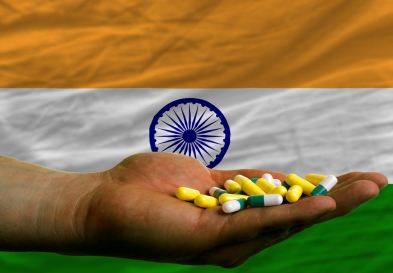
Court asks government to protect vulnerable people from poorly-run trials.
More than 2,600 people reportedly died during clinical trials for new drugs in India between 2005 and 2012. It is perhaps no surprise that the Indian Supreme Court recently demanded that the government create a strict regulatory plan before the end of the year for clinical trials to ensure the safety of the human subjects who participate in them.
The court raised concerns that 162 trials were approved in a period of less than two months, even after the court banned all clinical trials unless specifically approved by the health ministry. The court is now requiring the health ministry to justify the quick approval of such a sizable number of studies, citing concern that the ministry is not following proper procedures. Until the ministry provides a satisfactory justification to the court, the studies approved this summer will be put on hold.
Estimated to be worth $400 million, the clinical trial industry in India has boomed in the last decade. American and European pharmaceutical companies are flocking to India to conduct drug research due to the low cost of operations and the vast number of available human subjects who do not take any other forms of medication, a desirable trait in test subjects.
But with poor, uneducated subjects comes vulnerability and opportunities for corporations and researchers to take advantage of them. Abuses of the ignorance and desperation of the poor have been revealed in the past few years, prompting demands from advocacy groups and the Indian courts for strict regulation of clinical trials.
Human rights advocates state that the lack of informed consent is the biggest failing of the drug research system in India. Patients go in for medical treatment and are told simply that they are being offered “free” medicines. They are not always told that the medicines are untested, unapproved, or in the trial stage. They are also often uninformed of side effects or other risks that accompany the treatment regimen.
The recent report of the deaths of seven tribal girls who were participating in a trial for a cervical cancer drug has spotlighted the ethical issue of drug research for the Indian public. Although investigators and Path, a US-based organization, dispute the causes of the deaths, a parliamentary panel has condemned the drug trial, finding that the investigators had not received consent from the parents of the hundreds of girls participating in the study.
To combat the issue of patient misinformation, an expert committee formed by the Central Drug Standard Control Organization (CDSCO) recommended that informed consent become mandatory for participation in a drug trial. Under the recommendations, all minors participating in a trial would need to have the consent of a guardian, and the issue of widespread illiteracy should be tackled through mandatory audiovisual recording of the informed consent discussion between investigators and subjects. The committee’s recommendations also call for compensation for injury or death resulting from a subject’s participation in drug trial.
As an additional part of the efforts in India to increase transparency in clinical trials, CDSCO, under the Drug Controller General of India (DCGI), is requiring clinical trial sponsors to disclose any payments being made to the investigator conducting the trial. The DCGI will also require a finalized legal contract for each study prior to granting approval. This move is likely a reaction to a scandal involving trial investigators who received funds from trial sponsors into the investigators’ personal bank accounts instead of their institution’s accounts.
However, the expert committee reportedly has said that CDSCO has mostly ignored its regulatory recommendations, prompting the court to step in and push the government to take action. The regulatory failures to date may also be due to the lack of enforcement resources available to CDSCO, personnel shortages, and a lack of expertise in the area of clinical trials.
Some people suggest that these regulations, aimed at protecting the poor and vulnerable, nevertheless may be having an unintended negative effect on the Indian economy. Concerns have arisen that the pharmaceutical industry may be backing away from India due to the increased involvement of the government in regulating drug trials. There are indications that India is missing out on hundreds of millions of dollars’ worth of business due to the unstable regulatory environment as companies back off on plans for future trials in the country.
U.S. government agencies have also expressed concern over clinical trial and drug safety in India. Earlier this year, the National Institutes of Health (NIH) reportedly canceled approximately forty clinical trials that the drug industry planned to conduct in India. Although the cancellations came after the health ministry established some additional clinical trial regulations in India, experts believe that the “unstable regulatory environment” makes India a less desirable location for foreign researchers because constantly changing rules can cause long delays.
Last month, the Food and Drug Administration (FDA) issued an import alert, prohibiting the manufacture of FDA-regulated drugs at the Mohali, India plant of Ranbaxy Laboratories, Ltd., an international pharmaceutical company. An FDA inspection in late 2012 apparently indicated that the facility in India lacked adequate quality control procedures and failed to comply with current good manufacturing practices.



